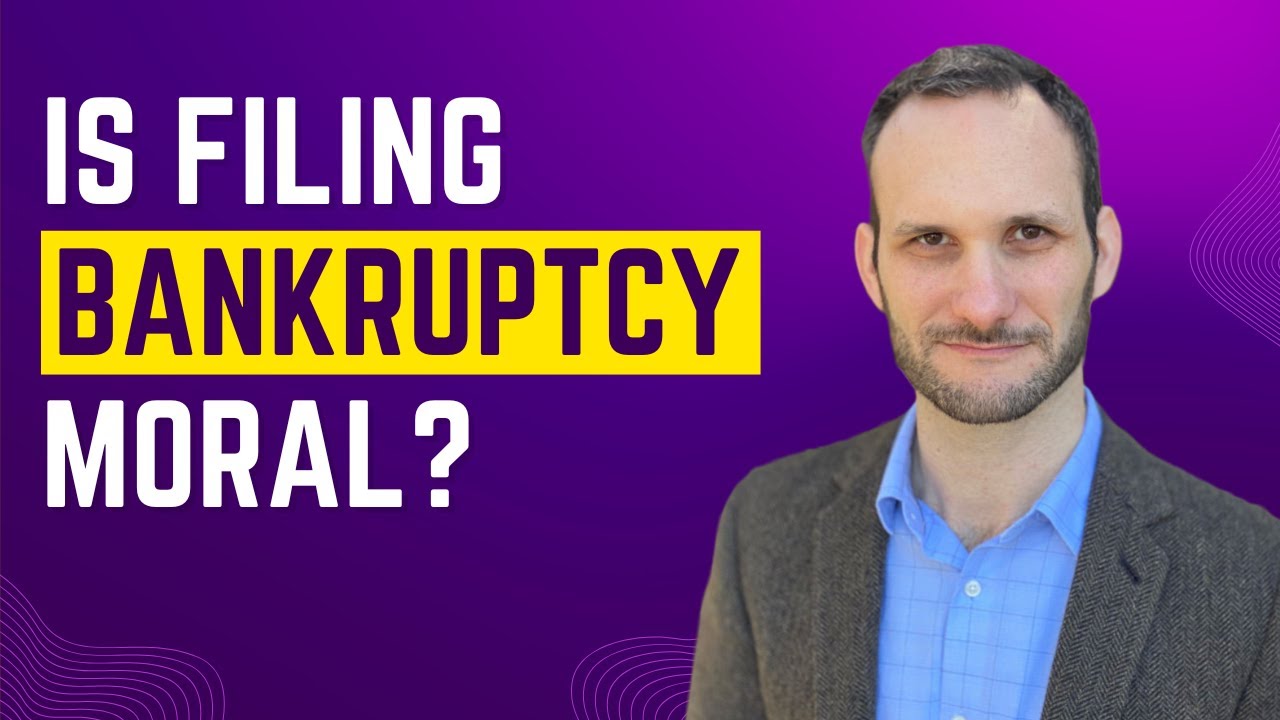Is Filing Bankruptcy Bad?
Summary
Most people who file for bankruptcy are honest people who feel badly about not paying their debts. Many believe that bankruptcy is immoral or that they are doing something wrong. Perhaps these people are too hard on themselves.
Why Filing Bankruptcy Is Not Bad
Here are a few reasons why bankruptcy should not be a moral issue:
- People promise to pay their bills, and people also promise to take care of themselves, their spouse, and their children. Sometimes things happen in life which make it impossible to keep both promises at the same time. If your family is more important to you than your creditors, then bankruptcy may be the right thing to do. You can always repay your discharged debts when you are able to do so.
- Deuteronomy 15:1-11 enacted what is essentially the first bankruptcy law: At the end of every seven years, you must cancel debts. This is how it is to be done: Every creditor shall cancel the loan he has made to his fellow Israelite. He shall not require payment from his fellow Israelite or brother, because the Lord’s time for canceling debts has been proclaimed” (NIV). In 1800, Congress used this law as the basis for the first bankruptcy statutes when it said that a person can file bankruptcy every seven years.
- Walt Disney declared bankruptcy before he created Disney World in Orlando, Florida. If not for the bankruptcy laws, this entertainment giant would not have been able to achieve his dreams.
- Congress enacted bankruptcy laws to help you. The law recognizes that when you are swamped with debt, you are unable to provide for your family or to be productive in our economy. It is in your best interest, and in the best interest of the people who depend on you, to clean the slate and give yourself a fresh start in life.
- You have probably already paid back your credit card debt through payments which the credit card companies chose to label as “interest” and “penalties.” The credit card companies are equally responsible for your bankruptcy. When you first encountered financial trouble, these creditors probably did not lower your interest rate or allow you to defer payments. The credit card companies are usually not understanding or sympathetic. These companies don’t care if you file bankruptcy because they have already recouped any losses through their 18 percent to 26 percent interest rates.
- The 2008 recession and the 2020 Covid-19 shutdown showed us that the best-intentioned and smartest business people in the world can make financial mistakes or can suffer financially without fault because of world-wide events. Many very conservative businesses have recently failed ranging from small family operations to our largest financial and manufacturing corporations. Don’t blame yourself if you succumb to the same pressures that put our best and brightest businesses into bankruptcy.
We help protect what you’ve earned.
Jon Alper and Gideon Alper are nationally recognized experts in asset protection planning and implementation. In over 30 years, we have advised thousands of clients about how to protect their assets from judgment creditors.
We provide all services remotely by phone or Zoom.

Is Filing Bankruptcy Immoral?
Whether filing for bankruptcy is immoral is subjective and depends on individual perspectives and values.
From a legal perspective, bankruptcy is a right provided under the law to help individuals or companies facing insurmountable debt. It’s a tool meant to protect debtors from complete financial ruin and offer them a way to start over. It also provides creditors with a structured way to recover as much debt as possible under the debtor’s financial circumstances.
From an ethical or moral standpoint, opinions can vary greatly. Some might view bankruptcy as a failure to meet one’s financial obligations, which could be considered morally or ethically wrong. However, others might argue that if a person or a company has fallen into such financial distress that they cannot reasonably repay their debts, seeking relief through legal means is not immoral.
Individuals or businesses often file for bankruptcy due to circumstances beyond their control, such as unexpected medical expenses, job loss, or economic downturns. Some would argue that filing for bankruptcy is not a moral failing but a necessary response to unforeseen and uncontrollable life events.
If you’re facing this decision, it’s crucial to consider all perspectives and get advice from trusted professionals. A lawyer can guide you through the legal implications, and financial advisors or credit counselors can help you understand the financial impact. As for the moral question, that’s something you’ll need to consider for yourself, perhaps with the input of trusted friends, mentors, or spiritual advisors. It’s a personal decision that depends on your unique situation and beliefs.
Sign up for the latest information.
Get regular updates from our blog, where we discuss asset protection techniques and answer common questions.










